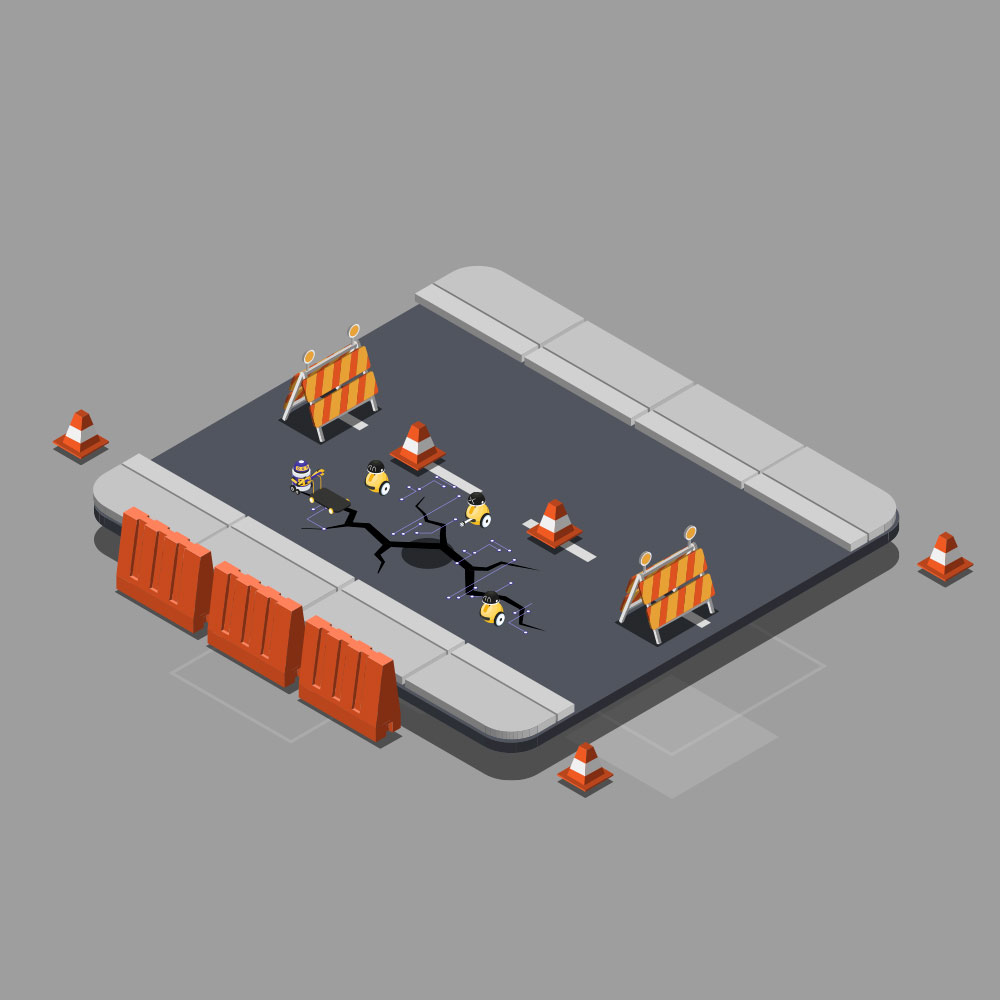Low-cost smart windows
Smart windows, varying the amount of light coming through the glass, can now be produced economically
Smart roads could benefit from a new metamaterial that detects vibrations and transforms them into energy.
One of the oldest building materials in the world - it was already in use in Roman times - is, at the same time, the subject of countless research projects today. After all, concrete is still the basic element in construction. However, technical advances are driving the development of more sustainable concrete, self-repairing, or capable of sequestering carbon dioxide.
Typically, these qualities are achieved through new ingredients, ranging from adding organic waste, such as beets, to using calcite-generating bacteria. At the University of Pittsburgh in the USA, they have turned to another approach - metamaterials - to develop a touch-sensitive concrete that can store energy.
First of all, it is essential to clarify what a metamaterial is. Basically, it is an artificial material endowed with electromagnetic qualities not found in nature, thanks to the creation of nanostructures with a specific geometry.
The theoretical development of metamaterials dates back to the 1970s, when the Soviet physicist V. G. Veselago published a paper describing their potential properties. In fact, it is such a novel field that the term "metamaterial" itself was not coined until 1999. Metasurfaces apply the principles of metamaterials but in two dimensions, which mean a thickness of a few nanometers.
The most common example is a material with a negative refractive index, i.e., capable of deflecting light in the opposite direction. In nature, all elements have a positive refractive index. For example, water has a refractive index of 1.33, while glass has a refractive index of 1.45. Technically, the ability to control the refraction of light could lead to the creation of so-called invisibility cloaks, i.e., a material worthy of science fiction that makes people and objects covered by them invisible. Or cameras the size of a grain of salt, as explained in this article.

The new type of concrete proposed by researchers at the University of Pittsburgh in a paper published in the scientific journal Advanced Materials can monitor variables such as pressure and, at the same time, store energy. These properties were studied in previous research on "self-aware" materials. That is, with structures that transmit information about the loads and stresses to which they are subjected, without the need for additional sensors.
As explained, the properties of a metamaterial can be modified by tuning the geometry of its nanostructures. In the case of concrete, minor adjustments can be made to its strength, durability, or flexibility. At the University of Pittsburgh, they have resorted to reinforced auxetic polymer lattices embedded in a conductive cement matrix with graphite powder.
The cement acts as an electrode and, when subjected to pressure, generates a small electrical charge. This electrical charge can be used to detect fractures in concrete in the event of earthquakes or impacts or to power LED lights or low-power devices.
In the experiments, in addition to these qualities, the scientists found that the material could be compressed by up to 15% without losing its structural integrity. This enables obtaining similar results to current concrete with a smaller amount of material, resulting in lower CO2 emissions in its production. Finally, the production of the new concrete is scalable and cost-competitive, paving the way for industrial-scale manufacturing.
According to the researchers, these unusual properties could also be used to construct smart roads. The idea is that road managers can check the condition of the road surface in real-time and repair it quickly. On the other hand, while the amount of energy is quite small, it is sufficient to power signaling components such as integrated lights or chips that communicate with self-driving cars. In this way, even in situations of poor GPS signal, the road could signal vehicles to guide them.
The roads of the future will integrate multiple functionalities beyond accommodating road traffic. For example, solar roads, i.e., roads equipped with photovoltaic cells. Another area of research is the development of electrified roads that allow electric car batteries to be charged with inductive technologies. Moreover, roads may even become self-healing. And all this with greater sustainability since they will also integrate recycled materials such as tires.
Source:
All fields are mandatory.
Read the most discussed articles
{{CommentsCount}} Comments
Currently no one has commented on the news.
Be the first to leave a comment.
{{firstLevelComment.Name}}
{{firstLevelComment.DaysAgo}} days ago
{{firstLevelComment.Text}}
Answer{{secondLevelComment.Name}}
{{secondLevelComment.DaysAgo}} days ago
{{secondLevelComment.Text}}